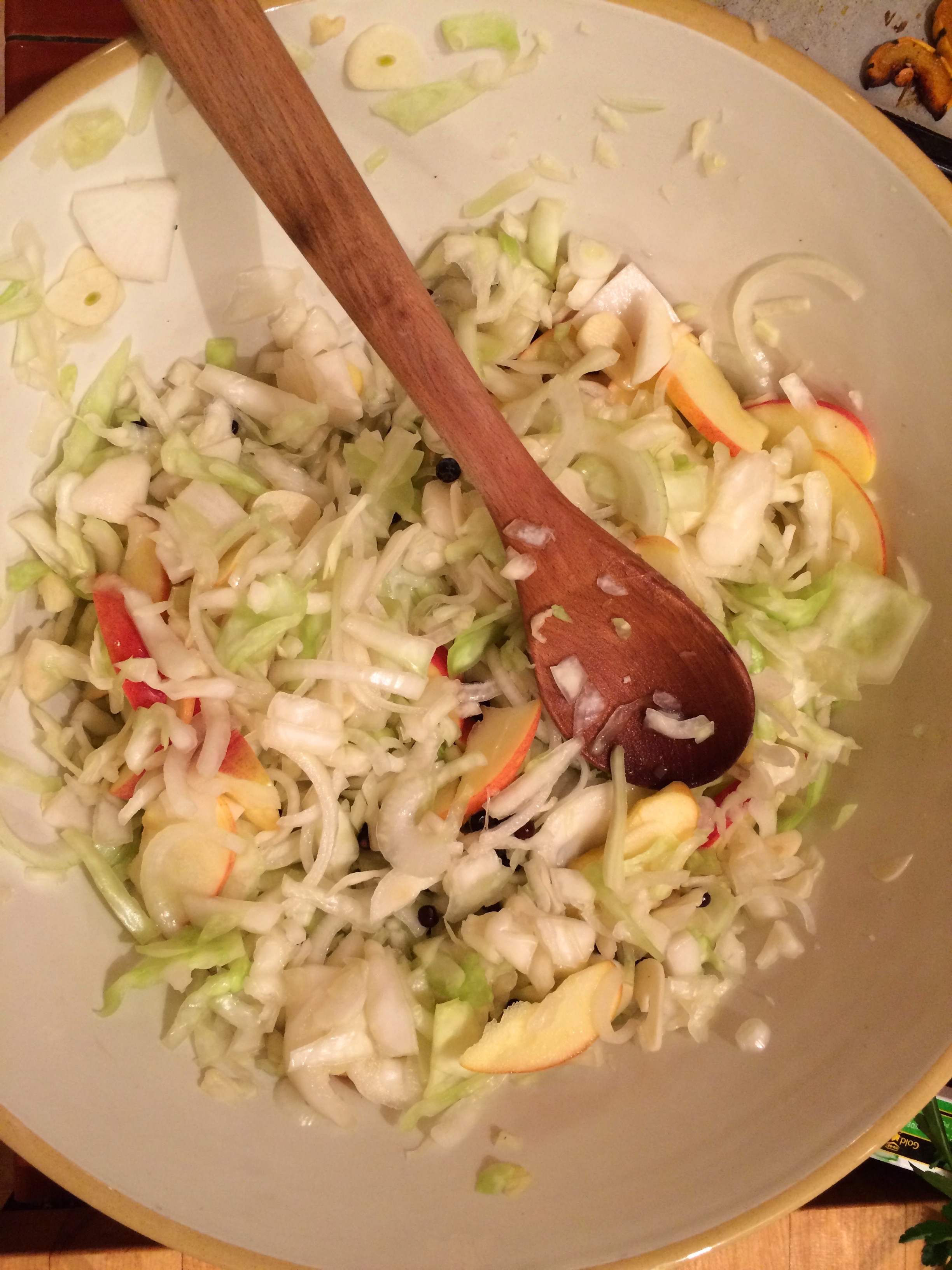Juniper Apple Sauerkraut
This is a wintery sauerkraut variation with a surprising and wild flavour that comes from the juniper berries. It has a balance of sweet and sharp flavours, and I find it goes especially well with meats. Refer to my original sauerkraut recipe here for more detailed information about making sauerkraut, as well as more about the benefits of eating fermented foods.
Recipe:
1 apple
1 green cabbage
1 yellow onion
approx. 4 large cloves of garlic
a sprinkle of juniper berries, about ¼ cup
approx. 1/3 cup daikon radish
kosher salt
2 large mason jars
2 weights
Thinly slice about half of the cabbage, placing in a large bowl. Add about a teaspoon of salt and massage until cabbage starts to break down, getting soft and releasing its juices. Slice the rest of the cabbage and add to the bowl, with another teaspoon of salt. Massage again (I find it easier to do this in two or more steps, because it is daunting to massage all the cabbage at once).
Thinly slice your apple, onion, garlic, and daikon radish, and add to the bowl with the cabbage. Add the juniper berries as well. Mix with a spoon.
Use your hand to fill mason jars with the cabbage mixture, compressing it down as you go so it is as tightly packed as possible. The juices should cover the top of the cabbage, but if not, add a little water so that it is entirely submerged. Place a weight over top to keep any bits from floating to the top (another jar filled with water, or any other clean heavy object will do).
Let sit for about 10 days (depending on how warm it is in your kitchen). After a week taste a little sample so you can monitor the fermentation progress, and when it is soft and tangy to your liking, remove the weight and place in the fridge with a regular lid. Enjoy at your leisure!
Juniper Berries: You will most likely know the flavour of juniper as what gives gin its distinctive taste. In Canada you are likely to come across Juniperus communis growing in the wild, a shrubby species of Juniper that is a very hardy plant. The berries have a very strong flavour that are often used in Northern European recipes with game meats and dried fruits. Medicinally juniper berries are a mild diuretic, though this is unlikely to have an effect at the quantities used in this recipe. I enjoy eating juniper because it is an unusual flavour that is reminiscent of a forest.




